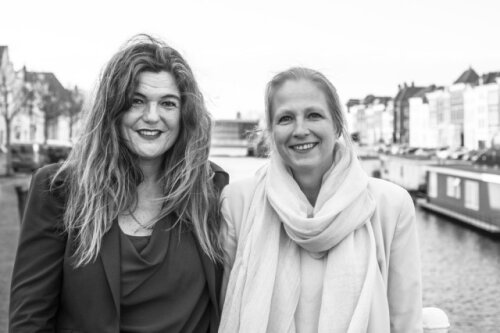Best Divorce & Separation Lawyers in Middelburg
Share your needs with us, get contacted by law firms.
Free. Takes 2 min.
Free Guide to Hiring a Family Lawyer
List of the best lawyers in Middelburg, Netherlands
About Divorce & Separation Law in Middelburg, Netherlands
Divorce and separation in Middelburg follow Dutch national law, applied at the local court and within the context of municipal administration. A legal divorce - echtscheiding - is granted by a court. Many practical matters that follow a separation - for example child care arrangements, financial support, and division of assets - are governed by Dutch statutes and case law. Middelburg is served by the Rechtbank Zeeland-West-Brabant - locatie Middelburg for family law matters, while the Gemeente Middelburg handles civil registration matters such as updating marital status after a divorce.
Why You May Need a Lawyer
You may need a lawyer in the following common situations:
- Contested divorce - when spouses disagree about divorce itself, custody, residence, child custody arrangements, child support, partner maintenance, or division of assets.
- Complex finances - if you own a business, have substantial joint assets, foreign assets, or complicated pension rights, a lawyer can protect your financial interests.
- Child-related disputes - disputes about parental responsibility, where the child will live, or where parents cannot agree on a parenting plan.
- International elements - if one or both spouses live abroad, hold foreign nationality, or have assets in other countries, specialist advice is needed for jurisdiction and enforcement.
- Protecting rights - to ensure fair calculation and enforcement of maintenance, correct application of marital property rules, and proper court filings and deadlines.
- Access to legal aid - to determine eligibility for subsidised legal assistance and to prepare a case for mediation or court efficiently.
Local Laws Overview
Key legal points to understand in Middelburg and across the Netherlands:
- Ground for divorce - The court will grant a divorce when the marriage has irretrievably broken down. Dutch law does not require proof of fault - the central test is that the relationship can no longer continue.
- Filing procedure - You can file jointly with a mutual petition or one spouse can file alone. If spouses agree on the main issues, the process is usually quicker. If contested, the court holds hearings and issues a decision.
- Parenting plan requirement - For divorces involving children under 18, parents are required to submit a parenting plan describing care, residence, contact arrangements, and financial provisions for the children.
- Parental authority - Decisions about parental authority and the childs habitual residence are central. Dutch courts prioritise the childs best interest when allocating care and contact.
- Property regime - The default marital property regime changed on 1 January 2018. The general rule now is a limited community of property - assets and debts acquired during the marriage are shared, while most inheritances and gifts remain separate unless expressly included. Prenuptial or postnuptial agreements can override the default regime.
- Maintenance - Child support and partner maintenance may be ordered. Child support is calculated based on the childs needs and the parents incomes and is enforceable. Partner maintenance depends on need and capacity to pay, with recent reforms affecting duration in many cases. Exact outcomes depend on facts and legal calculation methods.
- Pensions - Pension rights accrued during the marriage are frequently subject to sharing. Pension division rules apply and may require specialist advice.
- Enforcement - Maintenance and court orders can be enforced through national enforcement bodies. If a payer does not comply, collection agencies and enforcement procedures are available.
- Court and municipal roles - The court decides on dissolution and associated legal orders. After a final court decision, you must inform the municipality so records are updated.
Frequently Asked Questions
How do I start a divorce in Middelburg?
Start by consulting a lawyer or mediator to discuss options and prepare paperwork. If both spouses agree, they can submit a joint petition to the court in Middelburg. If one spouse objects, an individual petition is filed and the court will manage the contested process. After the court issues a divorce decree, update your marital status at the municipal office.
How long does a divorce typically take?
Duration varies. An uncontested divorce with agreement on key issues can take a few months. Contested cases often take longer - six months to more than a year - depending on complexity, court schedules, and whether appeals are filed. Complex financial or child welfare issues can extend the timeline.
Do I need a parenting plan?
Yes, when parents have children under 18, a parenting plan is required. It should set out care arrangements, residence, contact, communication, and financial responsibilities for the child. If parents cannot agree, the court may impose arrangements based on the childs best interest.
What happens to our property and debts?
Division depends on the marital property regime. For marriages after 1 January 2018 the default is a limited community of property - generally assets and debts acquired during marriage are shared while inheritances and gifts remain separate unless included. Prenuptial agreements influence division. A lawyer can review records and propose a fair division or negotiate settlement.
How is child support calculated?
Child support is based on the childs reasonable needs and the parents incomes and custody arrangements. Courts and guidelines use income information to calculate a fair amount. Payments are enforceable and can be collected via national enforcement services if necessary.
Will I have to pay partner maintenance?
Partner maintenance may be ordered if one spouse needs support and the other has the capacity to pay. Factors include the length of the marriage, ages of the parties, earning capacity, and earlier reforms that limit duration in many cases. Each case is assessed on its merits.
Can we use mediation instead of going to court?
Yes. Mediation is commonly used in the Netherlands and can be faster and less costly than litigation. A qualified mediator helps spouses reach agreement on custody, support, and property. If parties reach agreement, they can present it to the court for approval as part of the divorce process.
Where do I file if one spouse lives outside the Netherlands?
Jurisdiction depends on multiple factors - habitual residence of the spouses and children, nationality, and where assets are located. International elements make cases more complex. Consult a lawyer experienced in cross-border family law to determine the correct court and how foreign orders will be recognised or enforced.
Can I change my name after divorce?
Name change after divorce is handled through the municipality. Rules vary depending on whether you retained a partner name and local administrative procedures. After the final court decision, contact Gemeente Middelburg for the steps to update your civil records.
What are my options if I cannot afford a lawyer?
If you have limited income and assets you may qualify for subsidised legal aid - the toevoeging - administered nationally through the Raad voor Rechtsbijstand. Free initial advice may be available from the Juridisch Loket or local legal aid clinics. Mediators sometimes offer sliding-scale fees, and some organisations provide low-cost family law help.
Additional Resources
Organizations and bodies that can help in Middelburg and the Netherlands:
- Rechtbank Zeeland-West-Brabant - locatie Middelburg - the local court that hears family law cases.
- Gemeente Middelburg - for civil registration, name changes, and municipal family services.
- Raad voor Rechtsbijstand - administers legal aid and information about eligibility for subsidised legal assistance.
- Juridisch Loket - a national service offering free initial legal information and guidance on procedures.
- Landelijk Bureau Inning Onderhoudsbijdragen - central body that assists with collection and enforcement of maintenance payments.
- Mediatorsfederatie Nederland and Nederlandse Mediation Instituut - professional bodies for certified mediators.
- Nederlandse Orde van Advocaten - the Dutch Bar Association, useful for finding qualified family law lawyers.
- Municipal youth and family teams - local services that support child welfare, parenting guidance, and practical help for families during separation.
Next Steps
Follow this practical roadmap if you need legal assistance in Middelburg:
1. Gather documents - collect marriage certificate, birth certificates of children, income statements, bank statements, pension information, property deeds, and any prenuptial agreements.
2. Get initial advice - contact a family lawyer, mediator, or the Juridisch Loket for an assessment of your situation and options.
3. Consider mediation - if both parties are willing, mediation can lead to faster, less adversarial solutions for custody, support, and property division.
4. Check legal aid eligibility - if funds are tight, ask about the toevoeging from the Raad voor Rechtsbijstand or local legal aid clinics.
5. File with the court - if mediation is not possible or an agreement needs formal approval, instruct a lawyer to prepare and file the petition with the Rechtbank Zeeland-West-Brabant - locatie Middelburg.
6. Follow up with the municipality - after the divorce is final, ensure your marital status and any name changes are registered with Gemeente Middelburg.
7. Plan for enforcement and future adjustments - establish clear records of agreements and court orders so you can enforce payments or seek modifications if circumstances change.
If you are unsure about any step, seek professional legal advice early. Family law decisions can have long-term financial and personal consequences, and getting accurate local guidance will help you protect your rights and the best interests of any children involved.
Lawzana helps you find the best lawyers and law firms in Middelburg through a curated and pre-screened list of qualified legal professionals. Our platform offers rankings and detailed profiles of attorneys and law firms, allowing you to compare based on practice areas, including Divorce & Separation, experience, and client feedback.
Each profile includes a description of the firm's areas of practice, client reviews, team members and partners, year of establishment, spoken languages, office locations, contact information, social media presence, and any published articles or resources. Most firms on our platform speak English and are experienced in both local and international legal matters.
Get a quote from top-rated law firms in Middelburg, Netherlands — quickly, securely, and without unnecessary hassle.
Disclaimer:
The information provided on this page is for general informational purposes only and does not constitute legal advice. While we strive to ensure the accuracy and relevance of the content, legal information may change over time, and interpretations of the law can vary. You should always consult with a qualified legal professional for advice specific to your situation.
We disclaim all liability for actions taken or not taken based on the content of this page. If you believe any information is incorrect or outdated, please contact us, and we will review and update it where appropriate.









